Liz Truss
description: Prime Minister of the United Kingdom in 2022
33 results
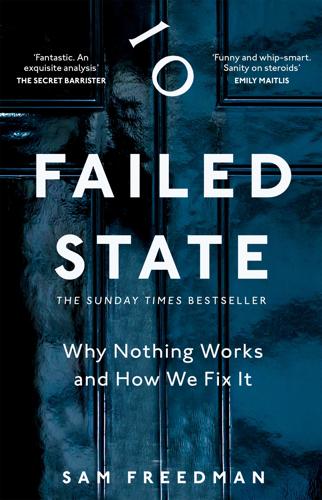
Failed State: The Sunday Times Bestselling Investigation Into Why Britain Is Struggling
by Sam Freedman · 10 Jul 2024 · 368pp · 101,133 words
the problems of our times and the triumphs of the past.4 When we look around us at the detritus of the Boris Johnson and Liz Truss premierships, an economy that has been stagnant for over fifteen years, failing public services, record levels of child poverty, overcrowded prisons, sewage in our rivers
…
Labour version argues responsibility lies with reckless Tory austerity, compounded by the self-inflicted injury of Brexit and the breathtaking incompetence of Boris Johnson and Liz Truss. The far left think all the mainstream parties are to blame for their embrace of neoliberal economics; the radical right that we are overrun by
…
experience. There’s the cabinet table at which Winston Churchill sat. The famous staircase with portraits of every prime minister ascending up the wall (even Liz Truss). The huge globe at the bottom of the stairs gifted to Margaret Thatcher by French President François Mitterrand, which almost caused a diplomatic incident when
…
, extensive state regulation. Because these services are monopolistic and essential, the government has not been able to shift the risk elsewhere, as we saw when Liz Truss was forced to announce a massive energy support package following the Russian invasion of Ukraine. Another example: in 2023, four out of sixteen rail franchises
…
Johnson, and Ross Kempsell, a 31-year-old former writer for the Guido Fawkes gossip website, who worked as the ex-PM’s media adviser. Liz Truss also appointed several peers in her ‘resignation honours’ despite only being prime minister for seven weeks. While Johnson and Truss were more brazen than previous
…
higher-ranking departments.’36 And this is exactly what has happened. Over the past decade the office has been occupied by people like Chris Grayling, Liz Truss and Dominic Raab, all of whom were ambitious, politically minded ministers. They were hardly likely to stand up for the judiciary given how that would
…
the absence of exams (due to Covid lockdowns), Jonathan Slater, the permanent secretary at the DfE, was fired, with no ministers taking any responsibility. When Liz Truss took over as prime minister one of her very first acts was to sack Tom Scholar, permanent secretary at the Treasury, which many think contributed
…
. 10 working on the political and media side and just twelve on policy. There is one adviser whose sole job is to manage the Grid. Liz Truss had fifteen advisers working in her press team (along with dozens of civil servants) and one adviser responsible for all public services including health, education
…
primacy of policy A world in which communications tactics and message discipline have become the driving force behind politics is the only one in which Liz Truss could have ended up as prime minister. She was a minister for a full decade before getting the top job, yet did not have a
…
after leaving office, and long dead, continues to dominate the party’s psychodramas. All Tory politicians who want to succeed have to pay tribute, but Liz Truss went further than anyone by literally cosplaying Thatcher, dressing in the same clothes and doing photoshoots in the same locations during her campaign for the
…
’t matter too. Having sharper, more thoughtful, emotionally intelligent people, with integrity, in high office will always makes things better. Conversely having Boris Johnson and Liz Truss in charge will always make things worse. But individuals are highly constrained and incentivized by the system they are working within. Even the most brilliant
…
.co.uk/1/hi/programmes/andrew_marr_show/8970305.stm 3 Interview with Camilla Cavendish. 4 Guido Fawkes blog, ‘Liz Truss SPAD list’, 13 September 2022, https://order-order.com/2022/09/13/liz-truss-spad-list/ 5 Interview with Rupert Harrison. 6 A.J.P. Taylor, English History 1914–1945 (Oxford University Press
…
, ‘The retromania election’, New Statesman, 31 July 2023, https://www.newstatesman.com/comment/2023/07/the-retromania-election 23 Reynolds, p. xiii. 24 Jordan King, ‘Liz Truss wears “identical” outfit to Margaret Thatcher at Tory leadership debate’, Metro, 16 July 2022, https://metro.co.uk/2022/07/16
…
/liz-truss-wears-identical-outfit-to-margaret-thatcher-at-tory-debate-17010566/ 25 Nigel Lawson, ‘Rishi Sunak is the only candidate who understands Thatcherite economics’, The Telegraph,
…
.html; Henry Kissinger, ‘Why there was only one Iron Lady’, Daily Mail, 22 October 2022, https://www.dailymail.co.uk/debate/article-11344127/HENRY-KISSINGER-Liz-Truss-saw-heir-Thatcher-one-Iron-Lady.html; Andrew Pierce, ‘Rishi Sunak should follow Margaret Thatcher and defend using private health’, Daily Mail, 10 January 2023
…
/2023/01/20/rishi-sunak-hasnt-yet-grasped-secret-how-mrs-thatcher-inspired/ 29 Simon Heffer, ‘No End of a Lesson: The Imitation Thatcherism of Liz Truss’, The Centre for Independent Studies, 14 December 2022, https://www.cis.org.au/publication/no-end-of-a-lesson-the-imitation-thatcherism-of
…
-liz-truss/ 30 Interview with Charlotte Leslie. 31 PA, ‘Tory Candidate Condemns “Hate-Consumed” Anti-Fracking Vandals Who Flooded Her Parents’ Garden With 1,000 Litres Of
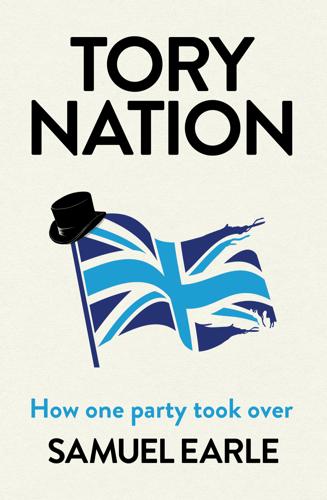
Tory Nation: The Dark Legacy of the World's Most Successful Political Party
by Samuel Earle · 3 May 2023 · 245pp · 88,158 words
comforts the Conservative Party in several ways. First, by painting each new leader as an aberration, the party rehabilitates the reputations of their predecessor. As Liz Truss’s prime ministership unravelled, for example, Cameron, May and Johnson emerged as model politicians by comparison: beacons of competence and stability rather than co-conspirators
…
Tory Britain, is cast simultaneously as a weak leader and a terrifying radical, ready to sabotage the nation. During her successful (of sorts) leadership campaign, Liz Truss attacked Starmer as a ‘plastic patriot’. Only a Tory, it seems, can be a real one. The Conservatives’ hold over Britain’s history and identity
…
calculated cruelty of austerity, the cavalier misrule of Brexit, the brazenness of Johnson’s lies and his fatal bungling of the pandemic, the delusions of Liz Truss’s free-market fantasies, the cynicism of confected culture wars – have deep roots in both British and Conservative history. The Tory Nation ultimately rests less
…
unrivalled record of victory. Britain’s departure from the EU – finally ‘done’ on 1 January 2021 – proved a huge asset. Its ‘Year Zero’ effect, as Liz Truss once put it, allowed the party to pretend it had taken on a new incarnation, untarnished by the past; that it was a different beast
…
compromises can be made. But the moment a leader is regarded as a dud, their time is up, with no love lost. Boris Johnson and Liz Truss – whose fates were sealed, respectively, by the Tories’ double defeat in the by-elections on 23 June 2022 and then a steep collapse in polling
…
-tanks like the Institute of Economic Affairs (IEA) and the Centre for Policy Studies (CPS). ‘This generation are #Uber-riding #Airbnb-ing #Deliveroo-eating #freedomfighters,’ Liz Truss declared on Twitter in May 2018, to widespread derision. Truss first made the rallying cry at the launch of Freer (launched by the IEA); the
…
and swear their allegiance – otherwise, they are likely to be the ones accused of betrayal. During the 2022 Conservative leadership campaign, the two main contenders Liz Truss and Rishi Sunak took increasingly elaborate steps to prove that they, not their opponent, were the true heir to Thatcher’s legacy. A Conservative election
…
individual people’s money, acquired through taxation, and this needs to be emphasised again and again. In this vein, during her leadership campaign in 2022, Liz Truss tried to do her best Thatcher impression when she reprimanded Tom Newton Dunn, a former political editor at the Sun, for asking her about proposed
…
wealth is one of the few constants of the Conservative creed, the common thread that runs from Edmund Burke to Boris Johnson, and onwards to Liz Truss (who began – or perhaps ended – her prime ministership with a defence of bankers’ bonuses) and Rishi Sunak. Even their acceptance of nationalised services, higher taxes
…
too many people in this country who are ashamed of our history, who talk our country down, who say the best days are behind us,’ Liz Truss declared in her campaign hustings in August 2022, as a cost of living crisis unfolded across the country with worsening forecasts on the horizons. ‘They
…
’t white – a remarkable display of diversity that no other major party in the Western world, on either the right or the left, could match. Liz Truss ultimately won the leadership election, but when her prime ministership quickly collapsed, runner-up Rishi Sunak, a practising Hindu and second-generation immigrant, replaced her
…
the Daily Telegraph, 2011 ‘Do-dooo-do-do.’ – David Cameron, humming to himself after announcing his resignation, 2016 ‘Look what you made me do… #trouble.’ Liz Truss, sharing a selfie with Taylor Swift on Instagram, 2019 Before 2015, Jeremy Corbyn, a Labour MP for Islington North since 1983, was well respected in
…
of them, Grant Shapps, withdrew before he could be nominated, and the other, Jeremy Hunt, had already tried and failed for the leadership in 2019. Liz Truss and Rishi Sunak swiftly moved to the head of the pack, and on 20 July, it became a two-horse race. The contest had the
…
Cameron, May, Johnson and Truss side by side, morphed together into a single, eight-eyed beast, with the caption ‘Same old Tories’. * * * On 6 September, Liz Truss travelled up to Balmoral to meet the Queen and become the fifteenth leader of Her Majesty’s seventy-year reign. Truss was also to be
…
in freefall, carrying the nation down with them. After only six weeks in office, much of which was taken up by the Queen’s funeral, Liz Truss was forced to announce her resignation. ‘Don’t worry,’ she told her shell-shocked Downing Street staff. ‘I’m relieved its over… at least I
…
would be selected solely by MPs. Despite internal differences and all the chaos the party had caused, the Tories’ infamous survival instincts showed themselves again. Liz Truss resigned on Thursday; Boris Johnson dropped out of the race on Sunday;46 and on Monday, Rishi Sunak was declared Britain’s new PM: the
…
more mundane problems – collapsing living standards, overstretched public services, falling wages – might be carried away with them, too. Sunak took the controversial step to reappoint Liz Truss’s hard-line home secretary Suella Braverman to her post, even though she had been forced to resign only a week earlier for breaking the
…
benefit cuts dependent on ignorance, TUC-commissioned poll finds’, Trades Union Congress, 4 January 2013. 28 Oliver Wright, ‘Suella Braverman criticises ‘benefit-street culture’ as Liz Truss faces warring ministers’, The Times, 4 October 2022. 29 Richard Partington, ‘Tax lost in UK amounts to £35bn – almost half, say campaigners, due to fraud
…
, Socialism and Democracy, Routledge, 1994 [1943], fn22 p. 281. 39 ‘Truss turns on the media’, Spectator, 10 August 2022. 40 Jeremy Cliffe, ‘The Truss Delusion: Liz Truss and the rise of the libertarian right’, New Statesman, 28 September 2022. 41 Oliver Browning, ‘Queen Elizabeth II’s funeral ‘most important event world will
…
Times, 23 September 2022. 45 Harry Cole and James Heale, Out of the Blue: The Inside Story of the Unexpected Rise and Rapid Fall of Liz Truss, HarperCollins, 2022. 46 The Daily Telegraph published a piece by Conservative MP Nadhim Zahawi backing Boris Johnson moments before he withdrew. Headlined ‘Get ready for
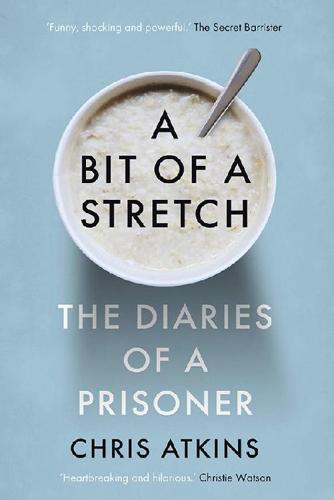
A Bit of a Stretch: The Diaries of a Prisoner
by Chris Atkins · 6 Feb 2020 · 335pp · 98,847 words
July Theresa May has been anointed as prime minister, and she unveils her first cabinet. Liz Truss is promoted to Justice Secretary, taking ultimate responsibility for the nation’s prisons.1 This surprises everyone, not least Liz Truss herself, who walks into Downing Street looking as if she knows as much about prisons as
…
as if my foundations have just been detonated. A sign proclaims that Maintaining family ties is vital for prisoners’ rehabilitation. This was recently echoed by Liz Truss, who said that ‘a prisoner’s family is the most effective resettlement agency’.2 Given the derisory visits allowance, these statements just twist the knife
…
us. Somewhat predictably, he is swiftly nicknamed ‘Chicken Burger’. 23 August There’s a lot in the news about Islamic extremism in prisons. Justice Secretary Liz Truss wants to set up specialist units to keep dangerous extremists away from other inmates, and stop the spread of poisonous ideologies.9 I’d definitely
…
have an illegitimate streaming service, and instead chips in with his own opinion: ‘I prefer the Lannisters’ storyline; that dwarf is bloody funny.’ 17 September Liz Truss, the new Justice Secretary, has just made her first appearance in the House of Commons. A friend sends me a scathing report from politics.co
…
.uk: ‘Prison reform looks dead in the water under Liz Truss … She waffled and giggled but rarely got close to answering the question. It was painful to watch … Asked whether there are too many or too
…
. This time he’s rushed to hospital and we never see him again. 3 November After a month of terrible headlines about the prison crisis, Liz Truss tries to take back the initiative. She makes a big announcement about her reform programme, telling the media that prisons are going to get the
…
round to him and sniffed, ‘It’s men, not prisoners.’ I tell Scott that I have to go to one of these meetings. 4 November Liz Truss finally announces a genuinely positive measure – prisons in England and Wales are to get 2,500 extra staff. This reportedly includes 400 emergency new staff
…
caused by some of my crude comments, and chalk this up as yet another reason for urgent prison reform. 6 November More details emerge of Liz Truss’s new reform plans. She wants to publish the English and maths scores of newly inducted prisoners and create prison league tables.11 This is
…
visits 10 jails a week, and demonstrates how she hides tiny mobile phones inside Mars bars. Her antics make a total mockery of prison security; Liz Truss must be going bananas right now. The film is a powerful watch, but it only focuses on drugs and violence, and avoids the more complex
…
but inexperienced volunteers. Food is delivered several hours late, someone nearly dies from self-harming, and an inmate climbs into the rafters for several hours. Liz Truss takes the POA to court, where the judge rules that the strike is breaking the law.18 This doesn’t seem like a very good
…
., and make sure you’re wearing your purple shirts.’ Ruben initially refuses to identify the VIP, but accidentally reveals that it’s the Justice Secretary, Liz Truss. This is deeply thrilling news. I often feel mystically linked to Truss, as we both embarked on our unlikely prison journey at the same time
…
spotless, so he has presumably been selected to give the best possible impression of Wandsworth’s living conditions. 11 December It’s the day of Liz Truss’s visit. I’m woken at 6 a.m. by a special cleaning detail banging about the wing. On freeflow I’m surprised to see
…
in the Second World War, which fooled the Germans with inflatable tanks and rubber aircraft. Ruben suddenly appears looking distraught. ‘I’ve just heard that Liz Truss isn’t visiting Trinity. She isn’t even meeting any prisoners.’ Looking round at this shower, I can’t say I entirely blame her. I
…
the centre. I’ve never seen the place so deserted; it’s as if all the inmates have been dissolved in bleach. Governor Bickers and Liz Truss suddenly appear behind us, and I jump back in surprise. The visitors seem equally shocked at encountering some real prisoners, and Bickers hustles them away
…
release, and they could just decamp to a nearby hotel. Conjugal wrongs Unlike American and European prisons, conjugal visits are not permitted in British jails. Liz Truss was once asked whether she might be flexible on this point, and she replied that she wasn’t ‘entirely in favour of the Danish approach
…
the tabloids still perpetuated the myth that prison was an easy ride. Politicians have started to shy away from supporting such stories, and in fairness Liz Truss said on LBC, ‘I visit prisons all the time. I can assure you that they’re not holiday camps.’17 26 January We keep a
…
for five years while the author was bullied out of a job.19 The study was eventually leaked to the Mail on Sunday in 2017, Liz Truss was castigated for suppressing the report, and the programme was eventually abandoned.20 Another study showed that mindfulness courses, which are bizarrely quite prolific in
…
are not popular in prison, and usually get moved to the nonce wing for their own protection. 23 February There is a bizarre interview with Liz Truss in today’s paper: ‘She is a big fan of movies about prison; her favourite is The Shawshank Redemption. And she wants to harness a
…
authorities could claim that prisoners had the support of a personal officer, even if it was just to hold the door open as they left. Liz Truss ends her TV interview by insisting that she’s in the job for the long haul. ‘This will take time, it’s not something you
…
the slips, and Gary opens the door to indicate that the meeting is over. I feel like Mr Bridger in The Italian Job. 1 March Liz Truss announces yet another plan to tackle the prison crisis. She wants existing staff to get specialist training to help prevent inmates self-harming and attempting
…
was the latest in a long line of tenuous political initiatives that sounded great in press conferences but did nothing to address the prison crisis. Liz Truss, who had constantly championed the reform programme, quit the following month.2 David Liddington was appointed Justice Secretary and made similar noises about enacting radical
…
/Crackdown-on-compensation-payouts-for-prisoners.html 8 http://www.politics.co.uk/comment-analysis/2016/09/07/prison-reformlooks-dead-in-the-water-under-liz-truss 9 https://www.theguardian.com/books/2016/oct/01/nobel-prize-laureatesmoney-award 10 https://www.dailymail.co.uk/news/article-3807325/We-deserved-truth
…
/2016/nov/02/prisons-in-england-andwales-given-boost-of-2500-new-staff-to-tackle-violence 8 https://www.theguardian.com/commentisfree/2016/nov/03/liz-truss-prisonofficers-prisons-staff-prisoner 9 https://justicejobs.tal.net/vx/mobile-0/appcentre-1/brand-13/candidate/so/pm/1/pl/3/opp/14284-14284
…
://www.imb.org.uk/independent-monitoring-boards/ 2 https://www.politics.co.uk/comment-analysis/2016/09/07/prison-reformlooks-dead-in-the-water-under-liz-truss 3 https://www.dailymail.co.uk/news/article-1392885/Prisoner-allowed-fatherchild-jail-human-right-family-life.html 4 https://www.thesun.co.uk/news
…
://www.newstatesman.com/politics/uk/2017/08/im-blame-blunkettsindefinite-prison-sentences-and-thousands-still-locked 15 https://www.theguardian.com/society/2017/aug/14/liz-truss-get-grip-backlogprisoners-held-beyond-interdeminate-sentence-ipp 16 http://www.ppo.gov.uk/app/uploads/2014/07/Risk_thematic_final_web.pdf 17 https
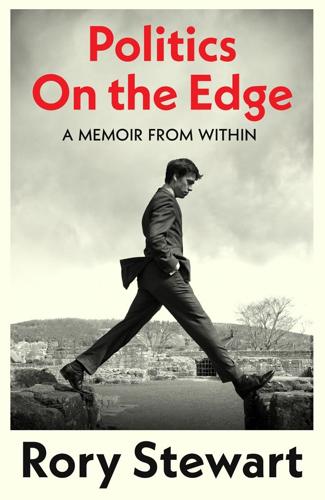
Politics on the Edge: The Instant #1 Sunday Times Bestseller From the Host of Hit Podcast the Rest Is Politics
by Rory Stewart · 13 Sep 2023 · 534pp · 157,700 words
-class and minority-ethnic backgrounds to be MPs – people like the British Asian public affairs professional Priti Patel, or the state-educated think-tank director Liz Truss. He would promote them fast so that he could announce, proudly, to the media that his Cabinet was the most diverse in history. Nor did
…
son in an Airborne Division tie, with the easy open face and broad shoulders of a man comfortable carrying a Bren gun, was sitting beside Liz Truss: the daughter of a pacifist left-wing maths professor and teacher, who had once made a speech for the abolition of the monarchy. All applauded
…
a wanker.’ A team player was someone who parroted the party line with fervour, never rebelled, and was never abashed. His younger promotions – Priti Patel, Liz Truss, and Matt Hancock – took this to a vertigo-inducing extreme. The older women, such as Amber Rudd and Anna Soubry, with adult children and long
…
more idealistic and loyal to Cameron conservatism, or whether the older ones would prove more steady? Was he worried about who exactly Priti Patel or Liz Truss were, how well they governed, or what exactly they believed? I doubted it. But by promoting these people consistently, Cameron had created the future leadership
…
private office, Minister,’ they said, in the tone of a concierge team at an expensive hotel. They explained that the department consisted of three ministers – Liz Truss was the Secretary of State and my boss. The Minister of State, the second most senior minister, had been given the portfolio for ‘food’ – which
…
she was in a meeting, and that I was to wait with her secretaries. After what seemed a long time, her inner door swung open. Liz Truss stood very close to me in the doorway, blocking my way. ‘Yes, Rory?’ ‘Hello, Secretary of State.’ ‘Yes, Rory?’ she said again, and she suddenly
…
did their implementation, for this was only a press release, masquerading as a plan. She showed me a picture she had just posted on Instagram. Liz Truss was the leading exponent of Instagram in Parliament. She seemed to be using images of herself in different costumes to suggest a pattern of progress
…
scepticism, open-mindedness and an instinct for complexity, the new politics demanded loyalty, partisanship and slogans: not truth and reason but power and manipulation. If Liz Truss worried about the consequences of any of this for the way that government would work, she didn’t reveal it. ‘And data, Rory. DEFRA is
…
-bag tax had been blocked for seven years, apparently because the Daily Mail and a single right-wing adviser in Number 10 thought it ‘unconservative’. Liz Truss, perhaps mindful of the Tory right, was reluctant to be too closely associated with the issue. But she was willing for me to pursue it
…
ever done in government had such impact. I tried to follow up with a tax on takeaway cups. This, however, was immediately slapped down by Liz Truss, who issued a formal statement to the papers, saying that she was overruling my initiative. ‘Stop’, she warned again, in a furious call on a
…
servants. And they stayed in the roles for decades. I felt I would prefer to be the CEO of a national park than an MP. Liz Truss called me in again. ‘Rory. I have decided to cut the budget of the national parks by 20 per cent.’ ‘Please don’t, Secretary of
…
roles I had felt that it was I who was the entrepreneur in a hurry, taking risks that others thought would not pay off, but Liz Truss made me feel like a cautious bureaucrat. My attempts to urge caution seemed to simply encourage her radicalism. She was, as Shoshana pointed out one
…
difficult to believe. Those were almost the last words he spoke. I was with him when he died half an hour later. Back in London, Liz Truss asked me how my weekend had been. I explained that my father had died. She paused for a moment, nodded and asked when the twenty
…
although I was responsible for a £1.8 billion flooding budget, the department could not justify an economy flight. This was apparently an instruction from Liz Truss. So I offered to pay for the flight myself and came back with more ideas on how to improve the crisis centre and use satellite
…
. Communities would be more sympathetic to ministers who had their feet wet, than to ministers who arrived after the water subsided. And I said that Liz Truss had agreed at the start of my tenure that I could get on the ground immediately. The rain closed the train line behind me, and
…
was now backing up. If we left the barrier down, 1,800 houses would flood. If we lifted it, 600 would. We lifted the barrier. Liz Truss came to join us. I found myself, to my surprise, happy to have her. She asked tough questions, was willing to wade into the water
…
live, to travel, to study, to buy homes and settle down. There will continue to be free trade and access to the EU single market.’ Liz Truss stayed with Remain and Cameron. ‘Michael Gove begged me to come with him,’ she said to me. ‘But it seems to me a massive distraction
…
stark. Cameron’s breeziness was replaced with May’s introverted earnestness. George Osborne was fired, brutally. So was Michael Gove. Other Cameron favourites such as Liz Truss and Matt Hancock lost their departments and were demoted. The Cabinet was redesigned to include a much broader coalition including prominent Brexiteers. I was a
…
my books on climate, flooding, urban trees and African conservation. I had fantasised about spending five years as environment minister. I had lasted twelve months. Liz Truss, who had been sent from being number one in DEFRA to number two in the Treasury, was packing down the corridor. This velocity of ministerial
…
keeping rival factions within the Conservative Cabinet, had appointed the Brexiteer Priti Patel. This was an even more paradoxical appointment than Cameron’s appointment of Liz Truss to the Department of Environment, Food and Rural Affairs, because Priti had called in the past for this department to be abolished and merged with
…
had privatised the Probation Service. The third, Michael Gove, had decided to sell off the London prisons, which stood on prime city-centre real estate. Liz Truss, the fourth, had rented out floors in our office building, got rid of more managers, and promised to reduce costs across prisons and courts with
…
this he seemed to mean that both the £2 billion, which Michael Gove had allocated for building six new prisons, and the £1 billion which Liz Truss had won from the Treasury for the digital transformation of courts, had already been blown on current spending. The money for new prisons and technology
…
be like your predecessors, fantasising about how to stop drugs coming in on drones.’ My predecessor, it seemed, had suggested flying eagles at the drones. Liz Truss had stood at the despatch box and said, ‘I was at HMP Pentonville last week. They’ve now got patrol dogs who are barking which
…
wasn’t likely to interest the media. Or be noticed by the prime minister. All of this would, I thought, have made my previous bosses – Liz Truss, Priti Patel, or Boris Johnson – view the project as a waste of time. Worse, it would probably be very unpopular with Michael Spurr and the
…
could. But, she feared that it might be politically impossible. As she reminded me, the privatisation had been allowed to continue by Michael Gove and Liz Truss, who represented the free-market right in Theresa May’s unstable Brexit Cabinet. The whole idea of renationalising a privatised sector was a profoundly un
…
turn onto Rotten Row. Michael Gove, a leading Brexiteer, had, my friend said, supported the proposal in Cabinet. But prominent voices in the Remain campaign – Liz Truss, the Chief Secretary to the Treasury, and Jeremy Hunt, the new Foreign Secretary – had turned angrily against the proposal, claiming it conceded too much to
…
, but I discovered the following morning that every newspaper had also received a detailed account of almost every word spoken – generally from the perspective of Liz Truss and Gavin Williamson. The following morning the Withdrawal Agreement was released to the general public and to more junior ministers, such as me. I ploughed
…
looked a ‘little nice’. Too many people in the room were known chiefly for their thoughtfulness and courtesy. We were supposed to be taking on Liz Truss, Priti Patel and Nadine Dorries, and challenging the religious certitude of Steve Baker, Jacob Rees-Mogg’s Instagram-enhanced languid reassurances, the D-Day invocations
…
seriousness. I had begun by noticing how grotesquely unqualified so many of us were for the offices we were given. I had found, working for Liz Truss, a culture that prized campaigning over careful governing, opinion polls over detailed policy debates, announcements over implementation. I felt that we had collectively failed to
…
), MP for Spelthorne. Son of an economist, and a barrister. Historian, prolific author, banker, not promoted under Cameron, junior minister for Brexit under May. Brexiteer. Liz Truss (born 1975), MP for South West Norfolk. Daughter of a maths professor, and a teacher. Economist at Shell and Cable & Wireless, believer in libertarian economics
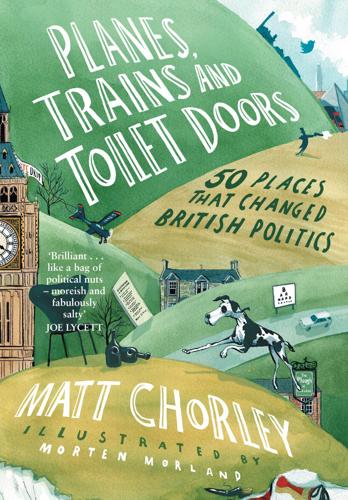
Planes, Trains and Toilet Doors: 50 Places That Changed British Politics
by Matt Chorley · 8 Feb 2024 · 254pp · 75,897 words
member of the government to have gone campaigning with his nanny, who was in favour of the idea as business secretary but was overruled by Liz Truss. In the end she lost power before the homes of Britain did. 9 Margaret Thatcher’s bathroom, Brighton Friday, 12 October 1984 A piece of
…
did not end there. John Bew, a professor of history and foreign policy at King’s College London who went on to advise Boris Johnson, Liz Truss and Rishi Sunak in Downing Street, has hailed Canning as the ‘torchbearer for the “liberal Tory” tradition’. When he became prime minister he split his
…
became reduced, rather unfairly, to a footnote, a punchline and a pub quiz question. His record as the shortest-serving prime minister remained unbroken until Liz Truss’s brief stint almost two centuries later. Canning did, though, get a statue in Parliament Square, where he now stands alongside fellow prime ministers Lloyd
…
herself down and in 2015 got elected as Conservative MP for Aldridge-Brownhills (a seat where local boy Nick Timothy also lost out again). When Liz Truss became prime minister in September 2022, among her many eyebrow-raising decisions was to promote Morton, then a middle-ranking railways minister, to the role
…
’, before moving to increase National Insurance to raise billions for the NHS and social care – a U-turn which was then U-turned upon by Liz Truss during her brief premiership and stuck to by Rishi Sunak. Theresa May has the rare honour of U-turning on a manifesto pledge even before
…
a tweet in the back of his government car, a grey Range Rover Discovery. After just thirty-eight days in the Treasury, his old friend Liz Truss was calling time on his job in a desperate attempt to save her own. Like so many Truss initiatives, it didn’t work. Truss and
…
.m. Steven Swinford, the impeccably sourced political editor of The Times, had tweeted: ‘I’m told that Kwasi Kwarteng is being sacked as Chancellor as Liz Truss prepares to reverse the mini-Budget. Not clear who will be replacing him. Events moving very, very quickly this morning. No 10 not commenting.’ Shortly
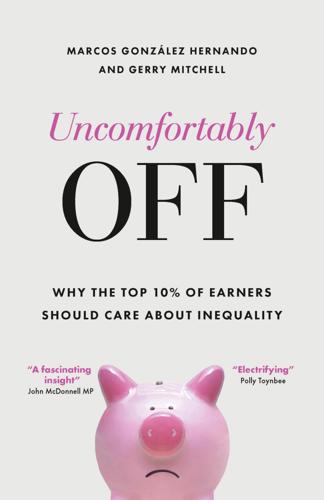
Uncomfortably Off: Why the Top 10% of Earners Should Care About Inequality
by Marcos González Hernando and Gerry Mitchell · 23 May 2023
distribution – a tendency that is only set to grow, considering interest rate hikes and a reduction in the range and generosity of mortgage products after Liz Truss’s premiership. Still, considering that mortgages tend to be in the region of four to five times a person’s annual salary, it is conceivable
…
only a few months ago, this was like an entirely different government coming into office’.18 Within three weeks, without having won a general election, Liz Truss had announced the biggest unfunded package (over £50 billion) of tax cuts in 50 years, bigger than any introduced by Margaret Thatcher. These included cuts
…
us all by granting them a more prominent role in the institutions that shape the public conversation. Our deadline for this book happened soon after Liz Truss became prime minister, in the chaotic days of October 2022, when the demand for urgent change of some sort was becoming harder to ignore. We
…
bill support scheme. The Guardian. 1 October. www. theguardian.com/money/2022/oct/01/energy-bill-supportscheme-scam-alert Allegretti, A. (2022b) Gordon Brown urges Liz Truss to ‘show up’ for workers struggling with bills. The Guardian, 7 September. www.theguardian.com/politics/2022/sep/07/gordon-brownurges
…
-liz-truss-to-show-up-for-workers-struggling-with-bills Allen, P., Konzelmann, S.J. and Toporowski, J. (2021) The return of the state: Restructuring Britain for
…
. (2022a) Kwasi Kwarteng may have U-turned, but huge spending cuts are still coming. The Guardian. 4 October. www. theguardian.com/commentisfree/2022/oct/04/liz-truss-kwasikwarteng-chancellor-u-turn-tax-cuts-public-services-benefits Brown, G. (2022b) Britain’s charities have done all they can to help desperate people. What
…
will Truss do? The Guardian. 7 September. www.theguardian.com/commentisfree/2022/ sep/07/britain-charity-help-liz-truss-government-cost-of-living Brown, M. and Jones, R.E. (2021) Paint your town red: How Preston took back control and your town can too
…
_final-1.pdf Electoral Calculus (2022) Regression Poll September 2022. www. electoralcalculus.co.uk/blogs/ec_mrppoll_20220928.html Elgot, J. and Stewart, H. (2022) Liz Truss U-turns on plan to cut public sector pay outside London. The Guardian. 2 August. www. theguardian.com/politics/2022/aug/02
…
/liz-truss-u-turns-plancut-public-sector-pay-outside-london-tory-leadership Eliasoph, N. (1998) Avoiding politics: How Americans produce apathy in everyday life. Cambridge: Polity. Eliasoph,
…
-ceiling-sam-friedman-daniellaurison-review-pays-to-be-privileged Harrington, B. (2016) Capital without borders. Cambridge, MA: Harvard University Press. Harrop, A. (2022) Faced with Liz Truss, the left can have confidence it will win the battle of ideas. LabourList. https://labourlist.org/2022/09/ faced-with
…
-liz-truss-the-left-can-have-confidence-it-will-winthe-battle-of-ideas Hastings, A., Bailey, N., Bramley, G., Gannon, M. and Watkins, D. (2015) The cost
…
. 226 References Ramsay, A. (2022) Brexit Britain is all alone in a senseless pursuit of disaster capitalism. Open Democracy. 4 October. www. opendemocracy.net/en/liz-truss-kwasi-kwarteng-disastercapitalism-brexit-britain/?utm_source=tw?utm_source=tw Raworth, K. (2017) Doughnut economics: Seven ways to think like a 21st-century economist
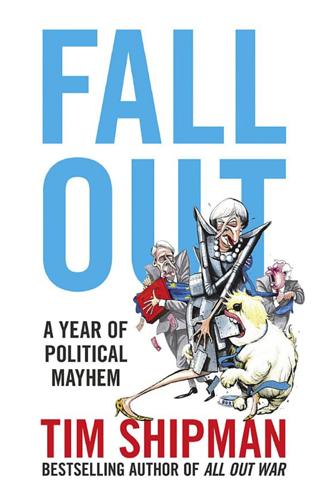
Fall Out: A Year of Political Mayhem
by Tim Shipman · 30 Nov 2017 · 721pp · 238,678 words
‘trying to organise a bunch of cats in the middle of a firework display’. Others banished to media Siberia included Justine Greening, the education secretary; Liz Truss, the justice secretary; and David Lidington. Hill’s sheet decreed that Jeremy Hunt, the health secretary, should be confined to ‘canvassing’. It is curious that
…
on power. A Downing Street source said that week, ‘They slag off Liam Fox. They don’t want Justine [Greening] there. They want to move Liz [Truss].’ In story after story, Hammond read that he was to be replaced by Amber Rudd. Colleagues say Timothy had also entertained the idea of breaking
…
wagons with people she trusted. There were promotions too for David Gauke, who replaced Green, and David Lidington, who took over as justice secretary from Liz Truss, who in turn replaced Gauke as chief secretary to the Treasury. Green, Gauke and Lidington were all sober, intelligent, low-key Remainers. More importantly, none
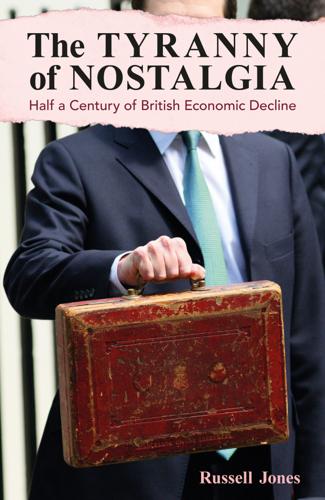
The Tyranny of Nostalgia: Half a Century of British Economic Decline
by Russell Jones · 15 Jan 2023 · 463pp · 140,499 words
decline’ as the next man. But I can honestly say that nothing in my past or in my studies prepared me for the shock of Liz Truss. I mention her because – despite not featuring much in Russell’s book, mainly because he wrote the book before she became prime minister – in many
…
a metaphor for decline. The problem with metaphors, though, is that while they illuminate they do not explain. How did the UK end up with Liz Truss as prime minister? Indeed, if you travel backwards in time, the past decade or so has been a veritable rogues gallery of less than successful
…
brought down the showman-in-chief, the last woman standing was up next to bat. That is how, and why, the UK ended up with Liz Truss. But aside from the comedy, and the handy proof that Truss provided that bond markets really can screw you up if you try hard enough
…
for a magic bullet repeatedly failed, and merely descended into inconsistency or outright (ideologically driven) experimentation. The extraordinary events of the autumn of 2022 – when Liz Truss, the short-lived prime minister, and Kwasi Kwarteng, her even more ephemeral chancellor of the exchequer, briefly sought to impose an absurdly inflationary, unsustainable and
…
a relapse into recession beckons, especially in the wake of the extraordinary recent fiscal policy debacle and subsequent U-turn perpetrated by Johnson’s successor Liz Truss and her chancellor Kwasi Kwarteng. International trade brings with it a plethora of positive influences, including enhanced competition, greater choice, the encouragement of economies of
…
response to these circumstances has been inadequate on many levels. This was especially the case in late 2022 when Johnson’s right-wing populist successor, Liz Truss, and her chancellor, Kwasi Kwarteng, effectively took leave of their senses when they sought to push through a range of iniquitous, unfunded and inflationary tax
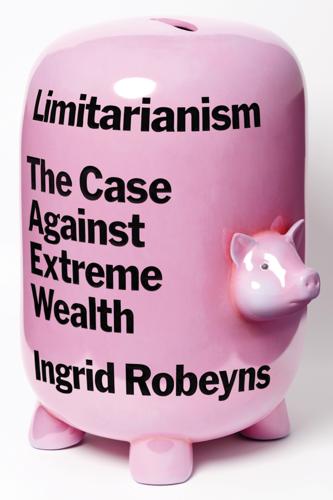
Limitarianism: The Case Against Extreme Wealth
by Ingrid Robeyns · 16 Jan 2024 · 327pp · 110,234 words
proof that cutting taxes for the richest does not lead to universally beneficial economic growth, we keep seeing the idea reappearing in politics. Most strikingly, Liz Truss, who served as British prime minister for forty-four days in 2022, proposed trickle-down economics as a way of responding to the escalating cost
…
. The financial markets reacted in alarm to this announcement, prompting the IMF to call upon the UK government to reconsider. Only a few weeks later, Liz Truss had to resign, and her budget was seen as the culprit.40 Despite all this, these two objections still have their defenders; you can find
…
in public discussions even today. Many of them are employed by think tanks funded by the super-rich. In fact, the think tank that advised Liz Truss, the Institute of Economic Affairs, has had a major influence on her successor, the multimillionaire Rishi Sunak, who has appointed several of this pressure group
…
, irishexaminer.com/opinion/columnists/arid-40985438.html; and Roger Partington, “The Mini-Budget that Broke Britain—and Liz Truss,” Guardian, October 20, 2022, theguardian.com/business/2022/oct/20/the-mini-budget-that-broke-britain-and-liz-truss. 41. Adam Bychawski, “Will Think Tanks Be Kicked Out of Downing Street After the Truss Disaster
…
?,” Open Democracy, October 27, 2022, opendemocracy.net/en/think-tanks-institute-economic-affairs-liz-truss-economy-crash/, and Quiggin, Zombie Economics, pp. 149–50. 3. It’s Dirty Money 1. Davis, Hecht, Burchardt, Gough, Hirsch, Rowlingson, and Summers, Living on
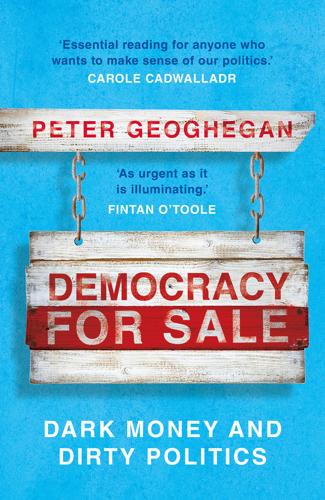
Democracy for Sale: Dark Money and Dirty Politics
by Peter Geoghegan · 2 Jan 2020 · 388pp · 111,099 words
temper the growing transatlantic influence on sections of the Conservative Party. In 2012, a quintet of rising Tory stars including future cabinet ministers Dominic Raab, Liz Truss and Priti Patel laid out their neo-imperial vision of a “buccaneering” Britain in a polemical anthology, Britannia Unchained. As with their US counterparts, these
…
special genius of the English-speaking people”. Talk of ‘Global Britain’ increased markedly after Johnson became prime minister. Fox’s successor as international trade secretary, Liz Truss, toured the world with a red, white and blue umbrella (and a personal photographer at the taxpayer’s expense62). John Bew was appointed to the
…
a charity and so is not subject to the same restrictions on political lobbying and partisanship. At Freer’s launch in the summer of 2018, Liz Truss took inspiration from chart toppers Destiny’s Child.83 “In the merits of capitalism, Beyoncé said it best: ‘All the honeys, who making money, throw
…
appointed some of the institute’s closest political allies to senior roles: Dominic Raab became foreign secretary, Priti Patel took over at the home office, Liz Truss replaced Liam Fox as international trade secretary. In a congratulatory email to its supporters, the IEA declared that 14 of those around the Downing Street
…
after” Brexit’, Business Insider, January 2019. 61 Tom Edgington, ‘Brexit: What trade deals has the UK done so far?’, BBC, January 2020. 62 Alex Wickham, ‘Liz Truss Charged The Taxpayer To Hire A Photographer For Her World Trade Tour’, Buzzfeed, October 2019. 63 ‘The Downing Street Policy Unit, Boris Johnson’s brain
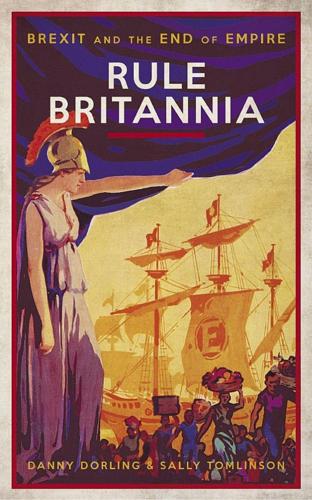
Rule Britannia: Brexit and the End of Empire
by Danny Dorling and Sally Tomlinson · 15 Jan 2019 · 502pp · 128,126 words
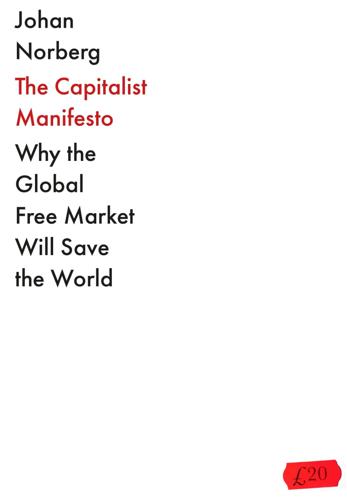
The Capitalist Manifesto
by Johan Norberg · 14 Jun 2023 · 295pp · 87,204 words
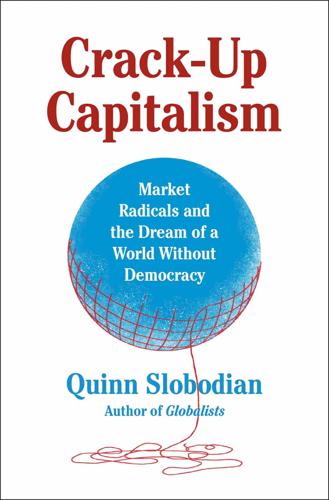
Crack-Up Capitalism: Market Radicals and the Dream of a World Without Democracy
by Quinn Slobodian · 4 Apr 2023 · 360pp · 107,124 words
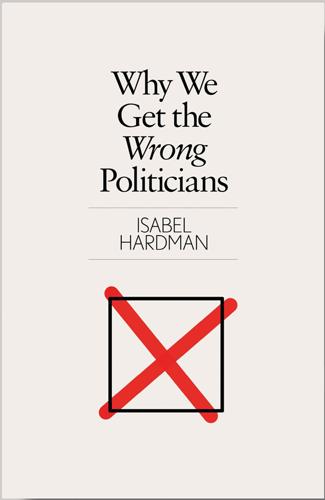
Why We Get the Wrong Politicians
by Isabel Hardman · 14 Jun 2018 · 333pp · 99,545 words
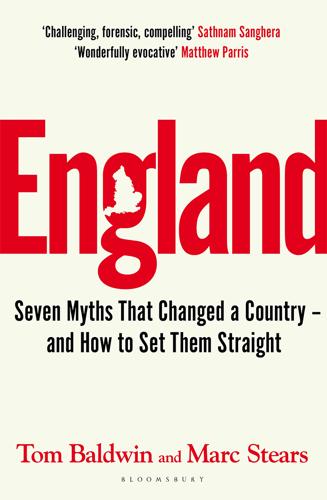
England: Seven Myths That Changed a Country – and How to Set Them Straight
by Tom Baldwin and Marc Stears · 24 Apr 2024 · 357pp · 132,377 words
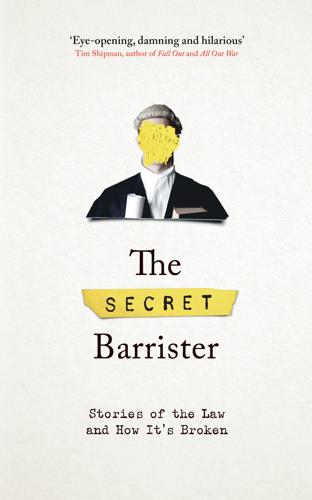
The Secret Barrister: Stories of the Law and How It's Broken
by Secret Barrister · 1 Jul 2018 · 372pp · 116,005 words
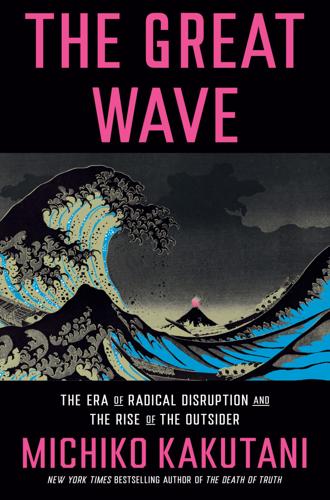
The Great Wave: The Era of Radical Disruption and the Rise of the Outsider
by Michiko Kakutani · 20 Feb 2024 · 262pp · 69,328 words
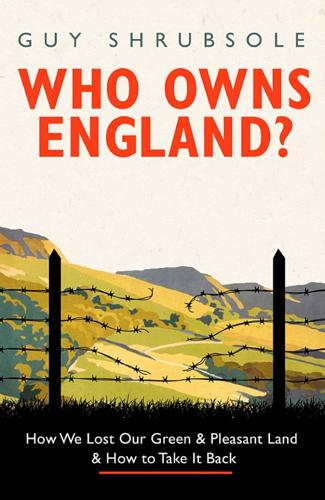
Who Owns England?: How We Lost Our Green and Pleasant Land, and How to Take It Back
by Guy Shrubsole · 1 May 2019 · 505pp · 133,661 words
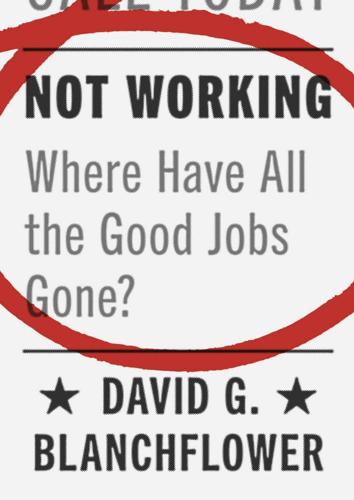
Not Working: Where Have All the Good Jobs Gone?
by David G. Blanchflower · 12 Apr 2021 · 566pp · 160,453 words

Green and Prosperous Land: A Blueprint for Rescuing the British Countryside
by Dieter Helm · 7 Mar 2019 · 348pp · 102,438 words

Other Pandemic: How QAnon Contaminated the World
by James Ball · 19 Jul 2023 · 317pp · 87,048 words
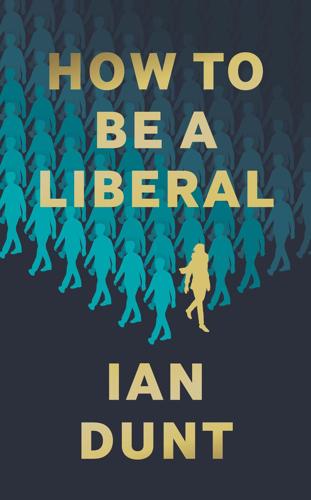
How to Be a Liberal: The Story of Liberalism and the Fight for Its Life
by Ian Dunt · 15 Oct 2020
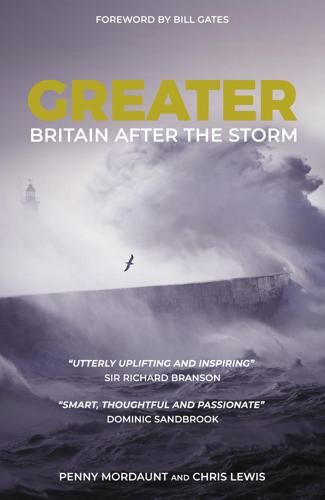
Greater: Britain After the Storm
by Penny Mordaunt and Chris Lewis · 19 May 2021 · 516pp · 116,875 words
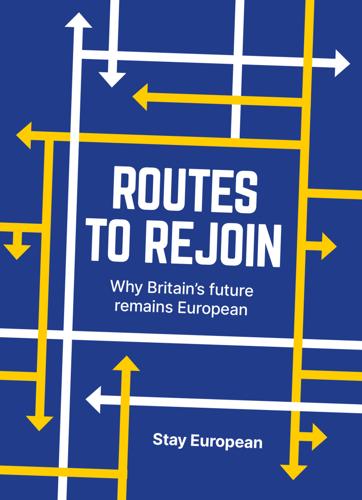
Routes to Rejoin
by Stay European · 3 Oct 2021 · 940pp · 16,301 words
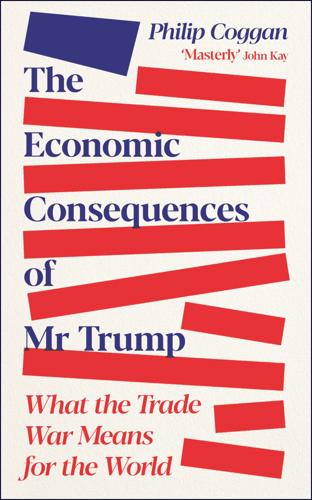
The Economic Consequences of Mr Trump: What the Trade War Means for the World
by Philip Coggan · 1 Jul 2025 · 96pp · 36,083 words
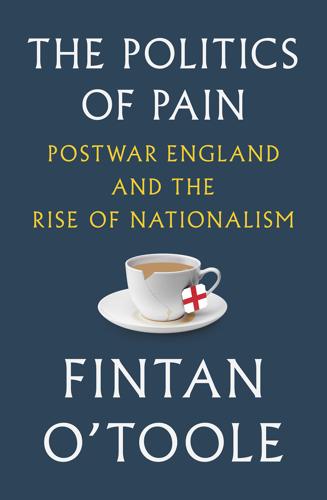
The Politics of Pain
by Fintan O'Toole · 2 Oct 2019
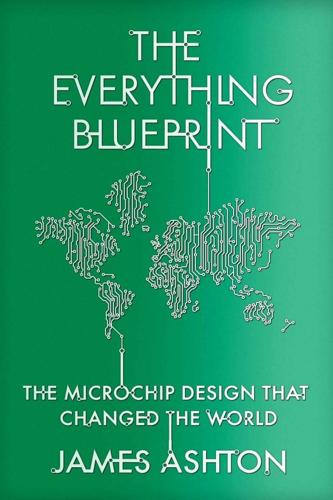
The Everything Blueprint: The Microchip Design That Changed the World
by James Ashton · 11 May 2023 · 401pp · 113,586 words
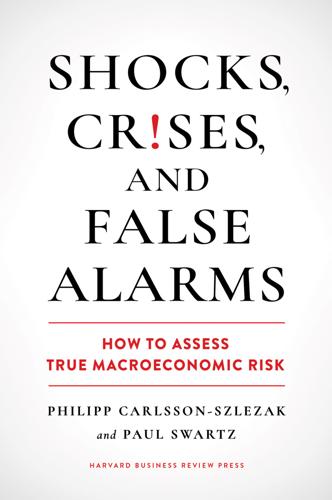
Shocks, Crises, and False Alarms: How to Assess True Macroeconomic Risk
by Philipp Carlsson-Szlezak and Paul Swartz · 8 Jul 2024 · 259pp · 89,637 words
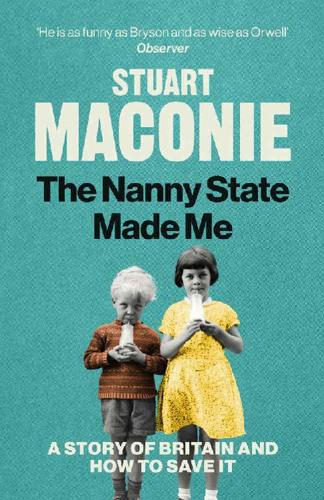
The Nanny State Made Me: A Story of Britain and How to Save It
by Stuart Maconie · 5 Mar 2020 · 300pp · 106,520 words
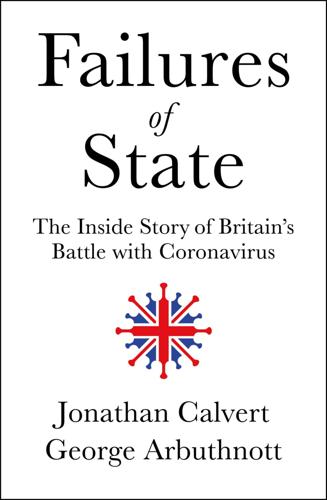
Failures of State: The Inside Story of Britain's Battle With Coronavirus
by Jonathan Calvert and George Arbuthnott · 18 Mar 2021 · 432pp · 143,491 words
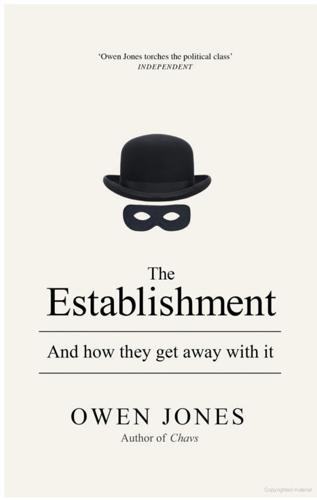
The Establishment: And How They Get Away With It
by Owen Jones · 3 Sep 2014 · 388pp · 125,472 words
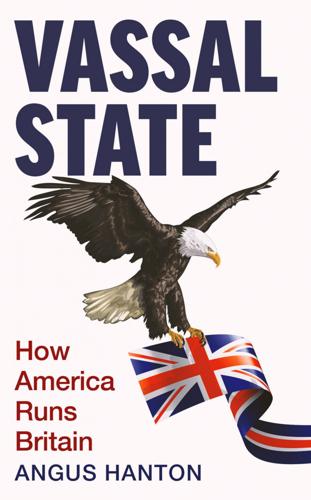
Vassal State
by Angus Hanton · 25 Mar 2024 · 277pp · 81,718 words
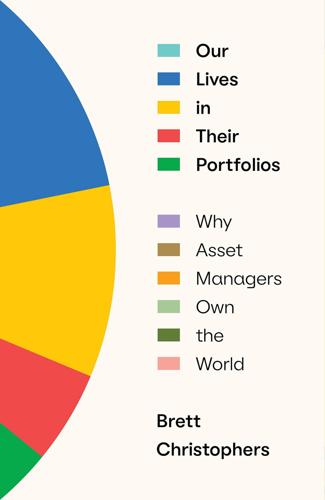
Our Lives in Their Portfolios: Why Asset Managers Own the World
by Brett Chistophers · 25 Apr 2023 · 404pp · 106,233 words